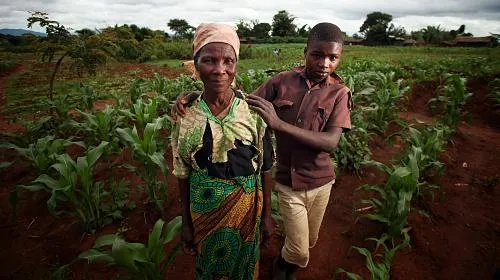Lawmakers fail to approve reforms to feed millions more people and reduce the deficit
WASHINGTON, D.C. (June 21, 2013) – We are deeply disappointed that the House of Representatives rejected a bipartisan amendment to reform America’s food aid system as part of H.R. 1947, the Federal Agriculture Reform and Risk Management (FARRM) Act. The common-sense amendment, offered by House Foreign Affairs Committee Chairman Ed Royce (R-CA) and Ranking Member Eliot Engel (D-NY), would have modernized our Eisenhower-era food aid program and extended it to as many as four million more people per year while reducing the deficit and enabled an end to inefficient practices currently mandated by law.
In failing to pass the Royce-Engel Amendment, Congress rejected a pragmatic approach to food aid that promotes long-term self-sufficiency in poor countries while maintaining a central role for American farmers in helping to feed the world. Failure to pass this measure means that when the next food crisis strikes in Syria, Somalia, or elsewhere, the U.S. will continue to lack the flexibility to respond in the most effective way.
The reforms offered in the Royce-Engel amendment were not new concepts: similar reforms were proposed by the Bush Administration, and the Obama Administration requested many of the same changes as part of its Fiscal Year 2014 budget.
We thank Chairman Royce and Ranking Member Engel for their bold leadership. The effort to reform food aid is not over. Today’s vote, the first time significant reforms have been debated and voted on the House floor, is the first step in a continued movement for more effective and efficient food aid. In only a few short months, food aid emerged as a top Congressional priority, and 203 Members of Congress supported bipartisan, common sense reform. Such progress is both unprecedented and encouraging. We look forward to continuing to work with the Chairman and Ranking Member, as well as the Administration, to reduce hunger around the world.
This statement is delivered on behalf of the following endorsing organizations:
- American Jewish World Service
- Bread for the World
- CARE USA
- Catholic Relief Services
- Church World Service
- InterAction
- Lutheran World Relief
- Mercy Corps
- Modernizing Foreign Assistance Network
- National Family Farm Coalition
- ONE
- Oxfam America
- Partners in Health
- Save the Children
- World Food Program USA
Media Contacts:
Washington, D.C.: Stephanie Chen, CARE, schen@care.org, +1.202.595.2824, +1.404.819.6638
Atlanta: Nicole Harris, CARE, nharris@care.org, +1.404.979.9503, +1.404.735.0871

